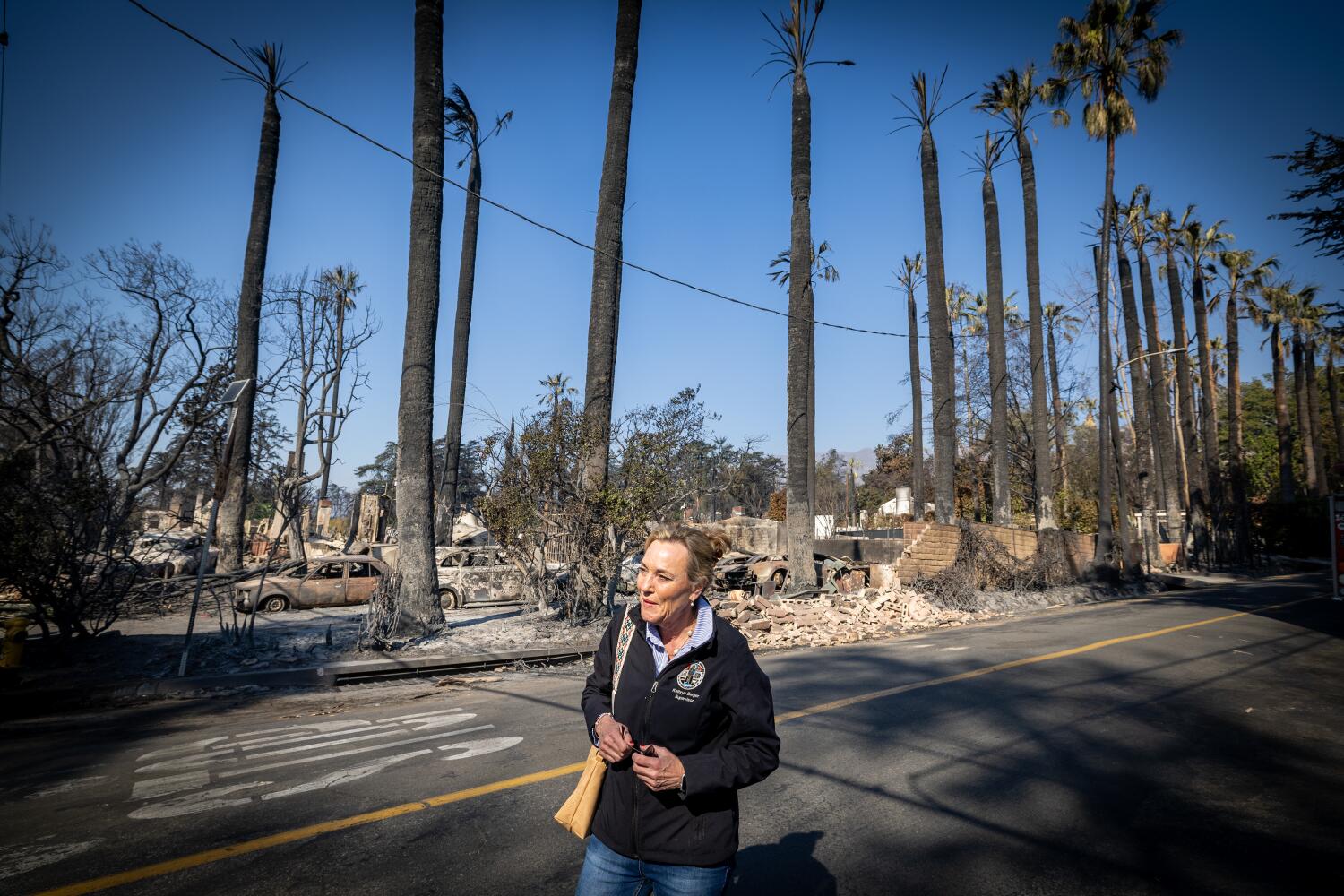-
How to Watch TCU vs BYU: Live Stream NCAA College Football, TV Channel - 10 mins ago
-
Ole Miss Fans Fear Lane Kiffin is Leaving After Postgame Comments - 44 mins ago
-
A Tiny West Wing Office Is Big on Trump Messaging - 44 mins ago
-
Princeton University Informs Students of Data Breach - about 1 hour ago
-
Alice Wong, Writer and Relentless Advocate for Disability Rights, Dies at 51 - about 1 hour ago
-
Three dead, one wounded in South Gate domestic violence case - 2 hours ago
-
Jonathan Smith’s Firing Expected After Michigan State’s Latest Loss - 2 hours ago
-
U.S. Border Patrol Launches Operation in Charlotte, N.C. - 2 hours ago
-
Alabama HC Responds to Player Infighting During Loss to Oklahoma - 2 hours ago
-
How to Watch Boise State vs San Diego State: Live Stream NCAA College Football, TV Channel - 3 hours ago
Like Mayor Bass, Supervisor Kathryn Barger also deleted her fire text messages

Los Angeles Mayor Karen Bass has come under heavy scrutiny for deleting the text messages she sent during the region’s disastrous January firestorms.
But she wasn’t the only elected official expunging her correspondence during those history-making days.
L.A. County Supervisor Kathryn Barger, who represents the area devastated by the Eaton fire, also routinely deletes her text messages, her spokesperson said.
“Supervisor Barger’s iPhone auto-delete setting is set to 30 days. She also manually deletes her texts sometimes,” Barger spokesperson Helen Chavez Garcia said last month.
The Times filed a public records request for Barger’s communications with Bass from Jan. 7 through late February. Barger’s office provided no written communications in response, despite Barger having publicly said that she was texting with Bass late into the night on Jan. 7, while Bass was in transit back to the city after a diplomatic trip to Ghana.
The other four supervisors — Lindsey Horvath, Hilda Solis, Holly Mitchell and Janice Hahn — do not use the auto-delete function on their phones, according to their spokespeople.
Chavez Garcia said in an email that there is “no pre-determined method that the Supervisor applies when selecting which messages to manually delete.”
Constance Farrell, a spokesperson for Horvath, said her understanding was that county officials were supposed to retain their text messages for two years to comply with the county’s record retention policy. Horvath’s office released some of her text messages in February after a Times public records request. The messages showed the supervisor sparring with Bass during the fires.
The county record retention guidelines make no mention of text messages but say that routine “administrative records” are supposed to be kept for two years.
The board’s executive office said the public record act applies to text messages, though some may be exempt from disclosure.
“Whether a supervisor’s text is a public record depends on whether it is a text regarding the conduct of the peoples’ business,” Steven Hernandez, the chief deputy for the executive office, said in a statement.
According to county policy, employees must sign an agreement every year acknowledging that all electronic communications, such as emails or instant messages, sent on county devices are the property of the county.
Bass previously kept her phone on a 30-day auto-delete setting, far shorter than the two-year retention period outlined in the city’s administrative code.
However, after being pressed by The Times, which had filed public records requests for the mayor’s correspondence during the Palisades fire, Bass’ office said it was able to recover the deleted messages using “specialized technology.”
(The Times sued the city in March over the mayor’s texts. Even though city officials ultimately provided some texts, The Times is contesting the city’s argument that releasing them was not required under state law.)
It also remains unclear whether Los Angeles City Council President Marqueece Harris-Dawson, who was filling in as acting mayor in Bass’ stead when the fires broke out, deleted his text messages from that time period.
After The Times filed a public records request seeking correspondence that Harris-Dawson sent to Bass or received from her between Jan. 6 and Jan. 16, Harris-Dawson’s office said it had “no responsive records.”
Harris-Dawson’s office did not respond to repeated questions over the course of several months about why there was no correspondence and whether it had been deleted.
“It’s very disappointing to see that that practice has spilled over up the street [to the County]. I was hoping it was just L.A. City Hall shenanigans and the absurdities of our two big leaders,” said Unrig LA founder Rob Quan, referring to Bass and Harris-Dawson.
Quan, who leads a transparency-focused good-government advocacy group, said he believed proper recordkeeping from January was all the more important given the historic importance of the fires.
Source link




















